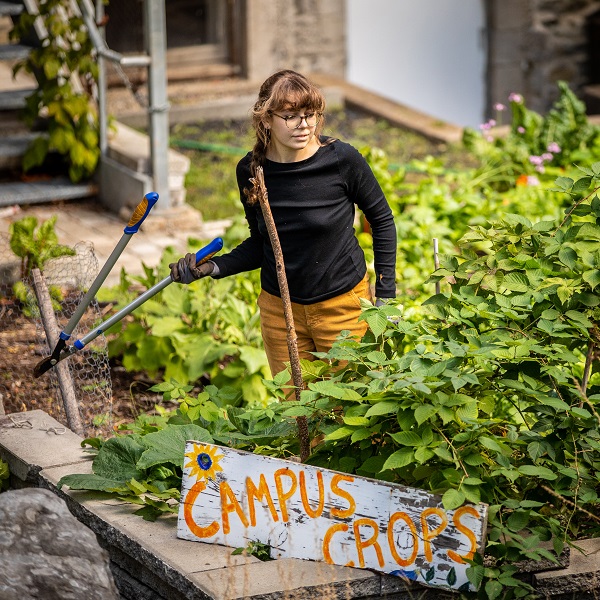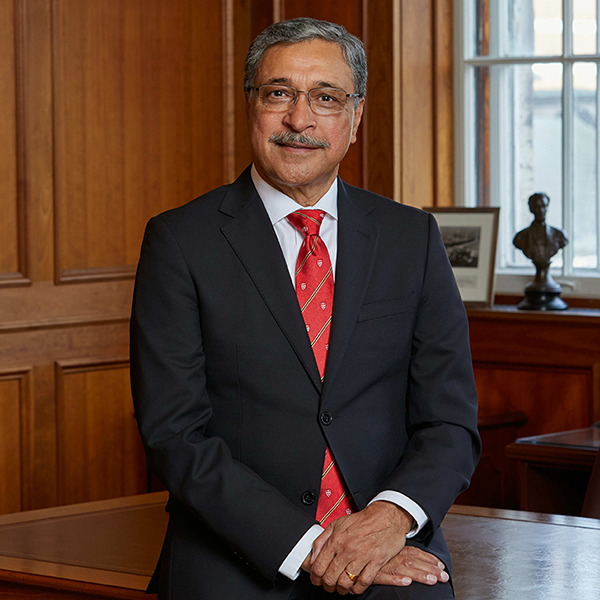The number of Chinese students enrolled at McGill has more than doubled in the past five years.
Enrolment shot up by 56 per cent, with 2,399 students registered this fall compared to 1,045 in 2013. These numbers include both undergraduate and graduate students.
And for the second year running, students from China make up the second largest group of international students at McGill, after Americans.
China moved into the No. 2 spot in 2016, formerly held by France.
“They’re really very close, and in fact, the top three are getting closer and closer together, so we’ll see what next year will bring,” says Jocelyne Younan, interim executive director, Enrolment Services.
In 2016, 2,381 graduate and undergraduate students from the United States enrolled at McGill, followed closely by China with 1,931 students.
“But it wasn’t that way five years ago,” Younan says. The U.S. numbers have stayed pretty stable over the 2,000 mark, whereas enrolment from China has crept up, she says.
Younan believes there are a few factors behind the 56 per cent spike in Chinese enrolment over the past five years.
“For one thing, Chinese students are going abroad for their post-secondary education because they are looking to get an international education.”
The most popular faculties among Chinese students are Science, Engineering, Management, Agricultural and Environmental Sciences, and Arts.
Shuaibo Huang, BSc’17, a native of Harbin in northeast China near the border with Russia, came to McGill for his undergraduate degree in computer science and psychology and is now working on his master of management in finance.
“I’m really enjoying studying at McGill and living at McGill,” says Huang who has been working as a floor fellow in a student residence for three years. “I absolutely love this job.”
Huang comes from a Chinese city that hosts an international ice and snow sculpture festival every year and wasn’t thrown off by Montreal’s weather.
But ‘Oh, it’s too cold’ is the second most common misconception McGill recruiters face in China, Younan said in mid-September, noting the beautiful late summer weather that day in Montreal.
“Students learn to enjoy the winter sports and they really learn to embrace Montreal during the four seasons.”
Recent alumni who take part in McGill recruitment activities in China help allay concerns about Montreal’s chilly winters.
“They’re the ones who take away those misconceptions by saying ‘It’s really not that bad’”, Younan says.
The top misconception is fear that because Montreal is a French-speaking city ‘I’m not going to be able to function here.’ But Younan points out that students live in the neighbourhood surrounding McGill, which is full of students and tends to be very English speaking. “And students who come here start getting very comfortable with learning some basic French and they’re glad to be able to learn a third language.”
McGill recruitment staff visit China every year, holding public information sessions for families and students and visiting schools. They also stage sessions for newly admitted students and their families, fielding detailed questions about things like accommodation.
Parents in Asia invariably raise the safety question and Younan, who visited Beijing and Shanghai last spring, says McGill recruiters stress that Montreal is a safe city.
They invite recent alumni to some events to speak with families. “I find that our alumni are the best ambassadors and they can talk about their real experiences and their real stories from when they were students,” she says.
“And most often their stories are about the great friends I’ve made, the great network I’ve developed and the great education that was tough, but I really appreciate it now…and how great Montreal was.”
Recruiters always mention the active McGill Chinese Students’ Society, which stages events, including taking students to Montreal’s Chinatown.
“There are different nooks where they find themselves at home, but at the same time they expand their horizons by (meeting) up with other nationalities,” she says.
Some parents and students tell McGill staff at recruitment events in China that they want the university setting to be multicultural.
No problem there.
Thirty per cent of McGill’s enrolment is international, 50 per cent is from Quebec, and 20 per cent from other Canadian provinces.
“It’s really a multicultural environment,” Younan says, “because half of the campus are local students, which again, will bring a very rich flavour to the campus and to their experiences.”


